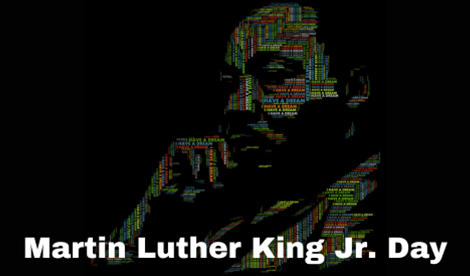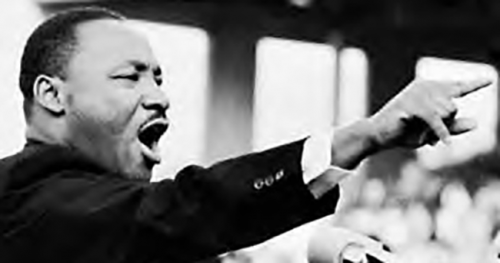News
Dr. Martin Luther King Jr.’s Living Legacy: A Call to Action

What is legacy? Is it the imprint of our actions, etched into the hearts of others? Is it the ripple effect of a life well-lived, echoing long after we’re gone? Or is it something we ponder—an idea, a movement, a dream, a light for those who follow? A paradox: both deeply personal and profoundly communal. It is as tangible as a worn protest sign and as intangible as the hope it carried. Legacy is not merely a story we tell but a charge we are given.
Dr. Martin Luther King, Jr., was a monumental man of legacy not only in scale but in vision of a beloved community—a society rooted in justice, equity, and love. Challenging the world as it is and sharing a dream of what it could become. An invitation to live differently, to act boldly, and to love expansively even when progress feels inevitable. This legacy challenges us to live differently, act boldly, and love expansively, especially when progress feels distant.

In his "The Drum Major Instinct" sermon, delivered in 1968 just before his assassination, King reflected on the desire for recognition and greatness. He argued that true greatness is not measured by power, fame, or wealth, but through humility and service to others. His message reconsiders what it means to be great: greatness, King believed, is the measure of service to others with love and selflessness, a belief in the power to transform lives and communities, building each bridge with care and breaking each barrier with force.
Our mission as a Christ-centered institution, affirms that all people, created in the image of God, possess inherent worth. Yet, to truly honor Dr. King’s legacy, we must move beyond affirmation to action, addressing the barriers of interconnectedness that pause flourishing. This work demands humility, perseverance, and a willingness to be uncomfortable. Yet, as Dr. King would say, “The arc of the moral universe is long, but it bends toward justice.” What began as a fight for civil rights evolved into a broader mission for human rights, as King deepened his understanding of what it means to honor the divine imprint within each person. His speeches, sermons, and activism reflect a legacy built on this foundational belief.
We reflect a unity grounded not in conformity but in the richness of true belonging. The power of joy and celebration. uplifting the voices and contributions of those who have been historically silenced. Creating spaces where people from all walks of life cannot just meet a mandate; they can live out the Gospel. Jesus’ ministry, like Dr. King’s message, was radical in its inclusivity. He invited those on the margins into the center, challenging systems of power and privilege that dehumanized others. Roberts Wesleyan University seeks to follow this example by creating environments where every person can flourish not confined to the past but by a living, breathing call to action—an invitation to transform our institutions and ourselves.
Legacy is not just the footprints we leave behind; it’s the path we choose today and the direction we chart for tomorrow. It takes on a tangible form, woven into the fabric of our mission. It challenges us to align our values with action, to be intentional in cultivating a community where every individual can flourish. Dr. King’s dream reminds us that the work of justice and reconciliation is not optional—it is central to who we are as a Christ-centered institution. His vision pushes us to examine our paths and asks whether they lead to equity, belonging, and the beloved community we all long to see.
Image credit: Pixabay



